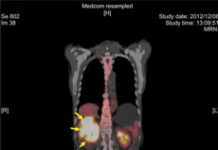A group of US investigators found a substantial decrease in the use of minimally invasive surgery, robotic or laparoscopic, for cervical cancer after publication of the results of the Laparoscopic Approach to Cervical Cancer (LACC) Trial. This reduction in clinical practice is mainly found among academic centres. However, the use of this approach is still widely present among non-academic providers suggesting an opportunity to improve outcomes.
In the LACC Trial among patients with early-stage cervical cancer who were randomly assigned to undergo minimally invasive surgery or open abdominal radical hysterectomy, minimally invasive surgery was associated with worse disease-free and overall survival than open surgery. A population-based study and a meta-analysis showed similar associations.
The clinical practice guidelines now favour open surgery, but the extent to which practice has changed is not known. It prompted the US researchers to evaluate data from the Premier Healthcare Database, a large, US national sample from providers with diverse demographic characteristics.
The study involved in total 2437 patients who received care at 283 centres between November 2015 and March 2020. This cohort was composed of 1482 patients (60.8%) at 141 academic centres (49.8%) and 955 patients (39.2%) at 142 non-academic centres (50.2%).
The use of minimally invasive surgery decreased after the publication of the LACC Trial results. At academic centres, the odds ratio for minimally invasive surgery after publication of the trial results was 0.27 (95% confidence interval [CI] 0.17 to 0.43; p < 0.001), as compared with 0.81 (95% CI 0.45 to 1.47; p = 0.49) at non-academic centres (p = 0.004 for the interaction term in an analysis-of-variance model).
Overall, the degree of reduction in the use of minimally invasive surgery did not differ according to hospital census region or patient race or insurance.
The authors concluded that their data suggest changes in the clinical practice patterns and highlight the effect of findings generated by randomised, controlled studies of surgical approaches.
Reference
Lewicki PJ, Basourakos SP, Qiu Y, et al. Effect of a Randomized, Controlled Trial on Surgery for Cervical Cancer. N Engl J Med 2021; 384:1669-1671
DOI: 10.1056/NEJMc2035819.





